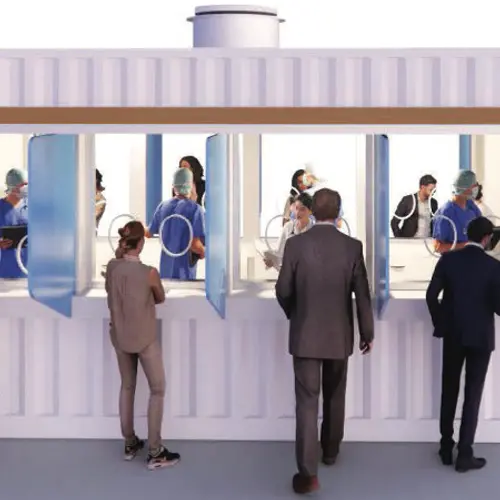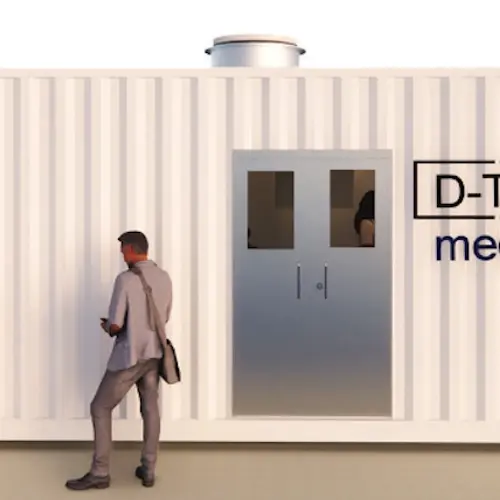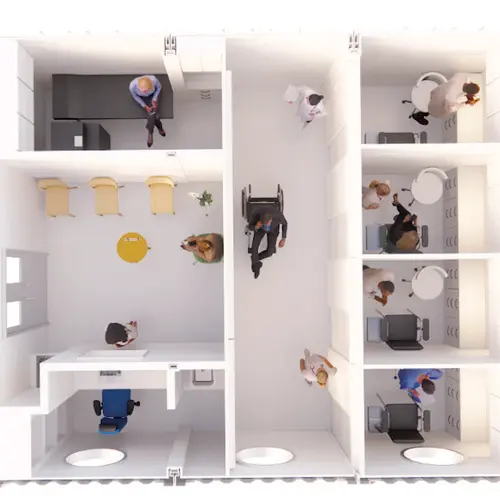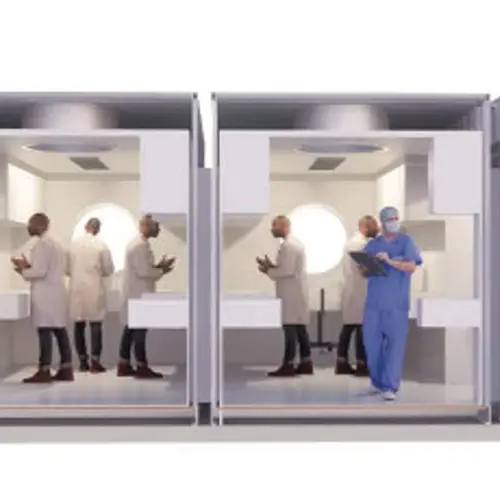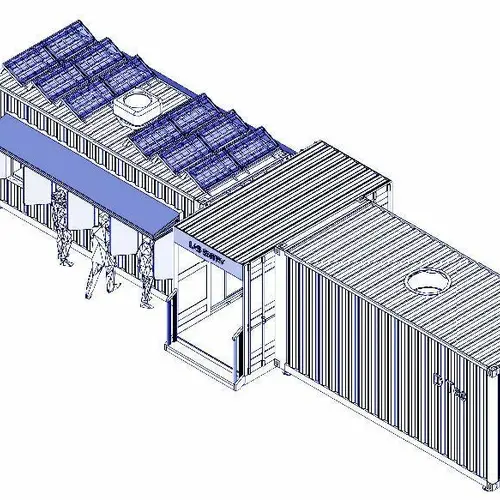Brooklyn-based company repurposes shipping containers for pop-up COVID-19 testing labs
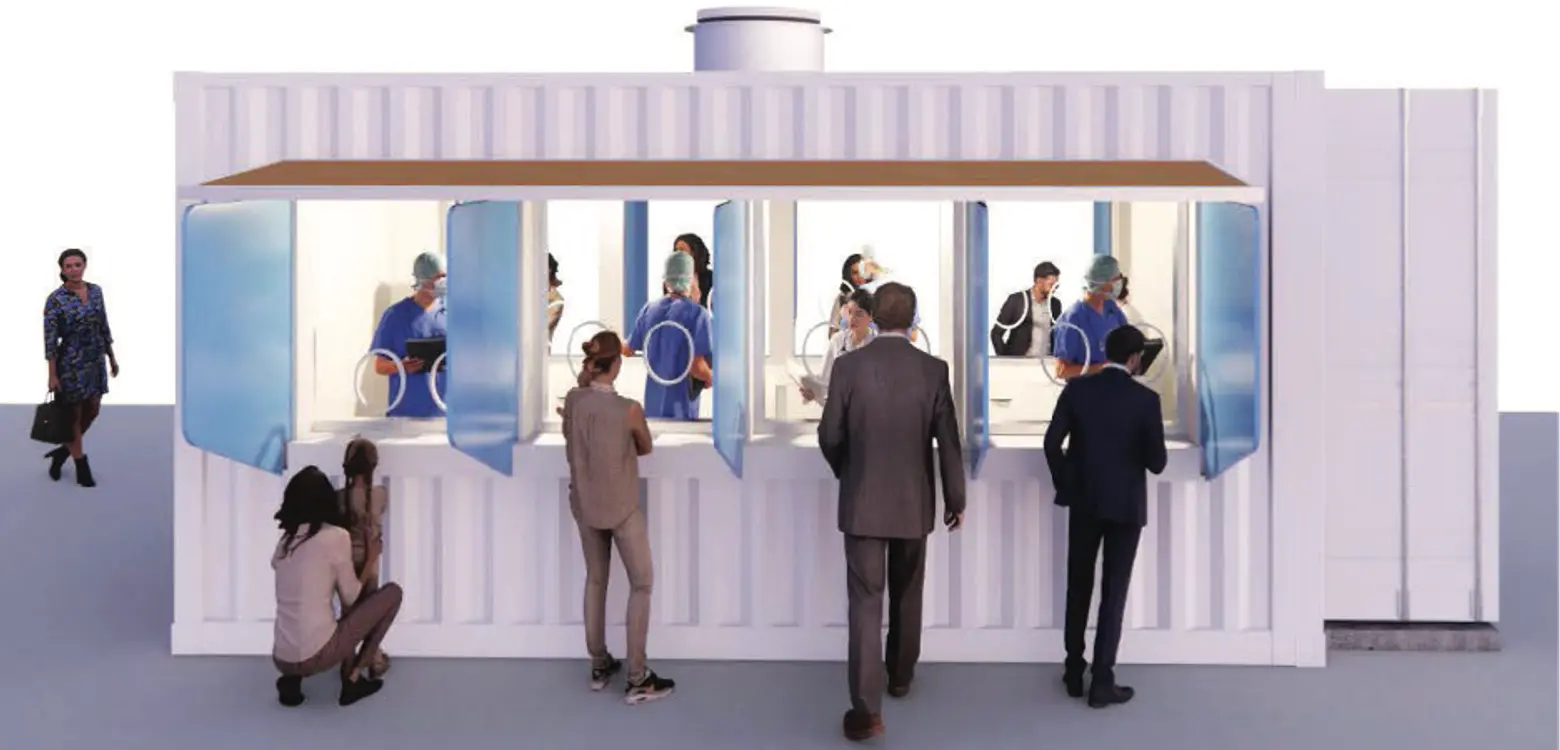
A prototype of D-Tec 1 clinic courtesy of SG Blocks
As the country enters the fourth month of fighting the coronavirus pandemic, public health experts and officials say the best way to keep the virus under control is expansive diagnostic testing. Harvard research group Global Health Institute says states should greatly ramp up testing to contain the spread of COVID-19, to at least 900,000 tests per day; currently, the U.S. is testing about 500,000 people per day. Paul Galvin realized his company, SG Blocks, which repurposes shipping containers for a variety of uses, could meet this crisis head-on. The Brooklyn-based construction organization has designed a new product line of medical pop-up clinics and COVID-19 testing facilities that are affordable, eco-friendly, and can be constructed just about anywhere.

Shipping container construction, courtesy of SG Blocks
Meeting the medical and housing needs of vulnerable people is not new to Galvin. Prior to founding SG Blocks, he ran a non-profit that focused on housing, nutrition, and medical care for high-risk populations in the Bronx and Brooklyn. During his time with the charity, he designed and managed shelters and emergency food programs alongside city and state officials.
His career later became more focused on real estate, specifically building affordable housing. Galvin’s experience working in the construction world led to his founding of SG Blocks in 2007. According to Galvin, the country’s housing problem may actually be a construction problem.
“The crisis is that the quality is not great and the pricing is really high. It’s environmentally poor and they don’t stand well to severe weather events,” Galvin said, referring to how the country builds, in an interview with 6sqft.
Offering a sustainable alternative to typical construction methods, cargo shipping containers require a smaller footprint, cost less, and can be delivered in half the time. The standard container is about 8,000 pounds empty and can hold 50,000 pounds, with the ability to hold even more weight at sea.
“Containers are a great construction tool,” Galvin said. “The only way to disrupt construction– and it certainly needs disruption–is to do some of the work off-site while the work on-site is being done.”
SG Blocks has created several container-based residential and commercial buildings, including for companies like Equinox, Starbucks, and even the U.S. military. The ability to stack the containers and customize their interiors provide a flexible and efficient way to build.
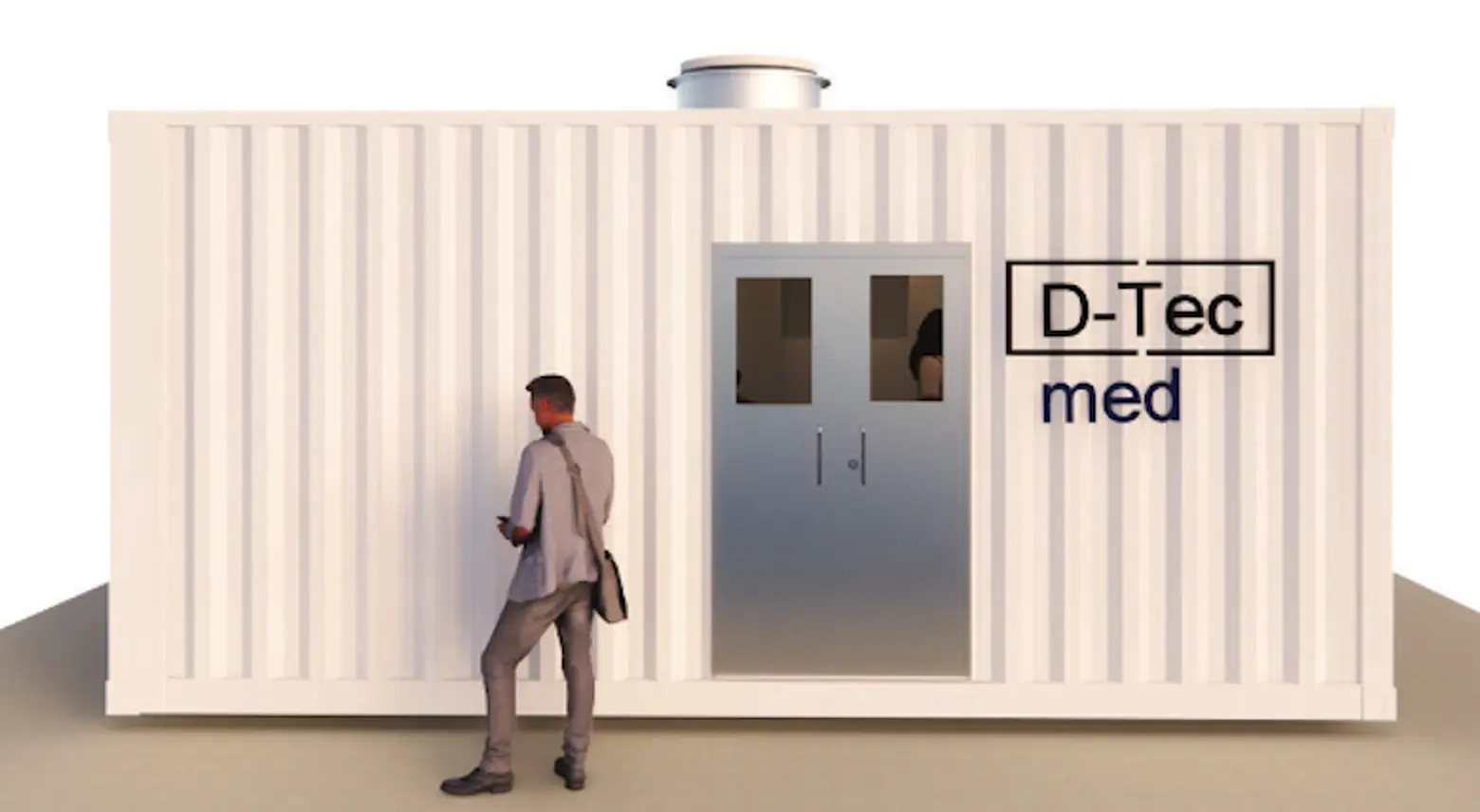
A prototype of D-Tec 1 med facility courtesy of SG Blocks
When the coronavirus pandemic hit New York, Galvin decided his business could help. “At the end of the day when this pandemic broke out, one of the things we were consistently hearing was the need to test people,” he said. “But also being able to test people in a manner that helps quarantine those that are ill or take some sort of barrier.”
“We think there will be a reimagining of the infrastructure, how medicine is delivered and how testing is delivered,” Galvin said.
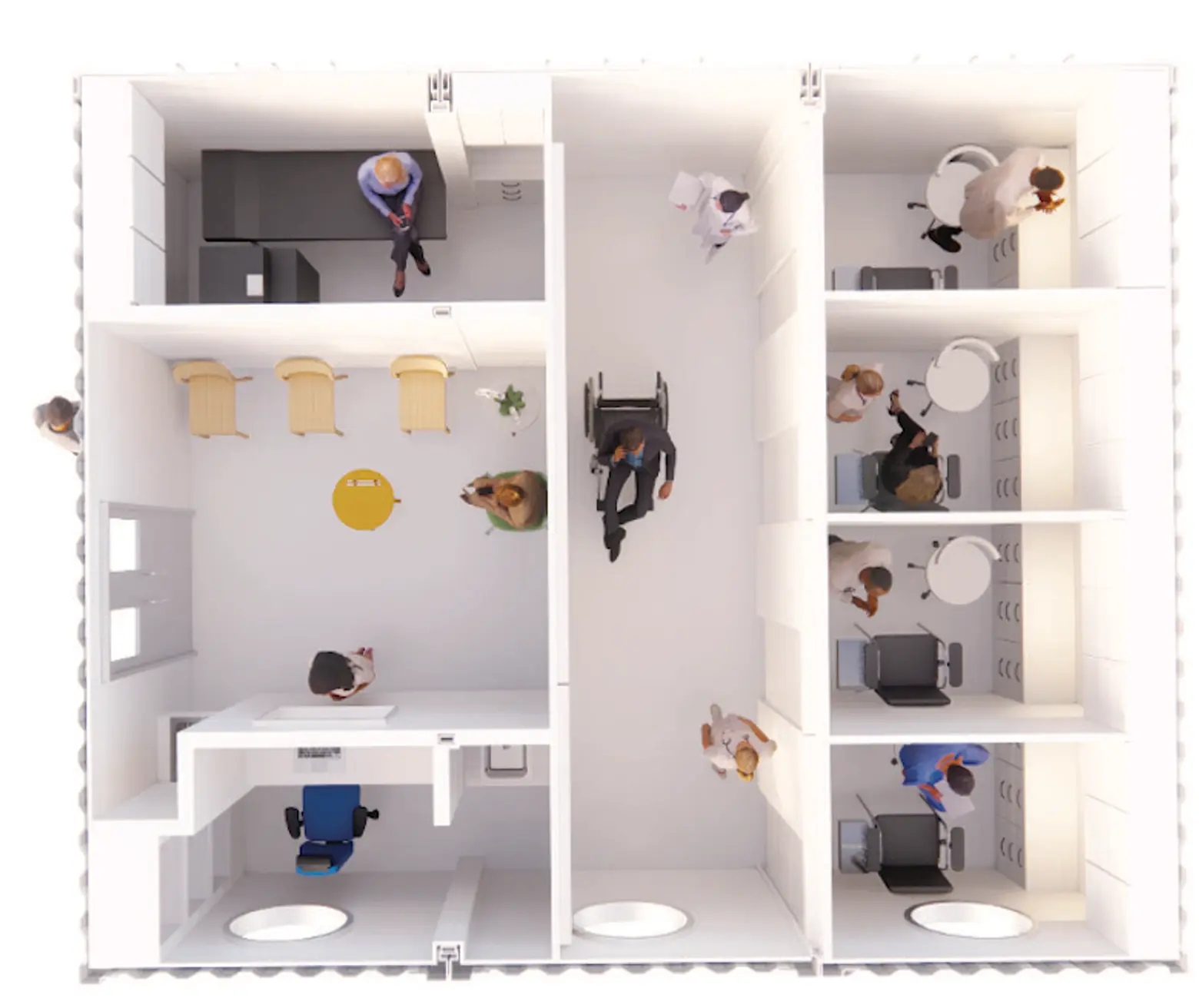
In March, SG Blocks revealed a series of pop-up container-based care clinics and lab facilities, with their flexibility allowing for a variety of uses, from patient care and testing centers to places to quarantine for those who test positive for the virus.
Through a deal with South Korea-based OSANG Healthcare Co., which makes medical-grade COVID-19 tests, SG Blocks now has the rights to sell, market, and distribute the tests, providing a turn-key solution to governments, especially in places seeing a surge in cases like New York did earlier this spring.
“We realized that this is the perfect use of a shipping container clinic. We can deploy tests, we can deploy these lab services,” Galvin said.
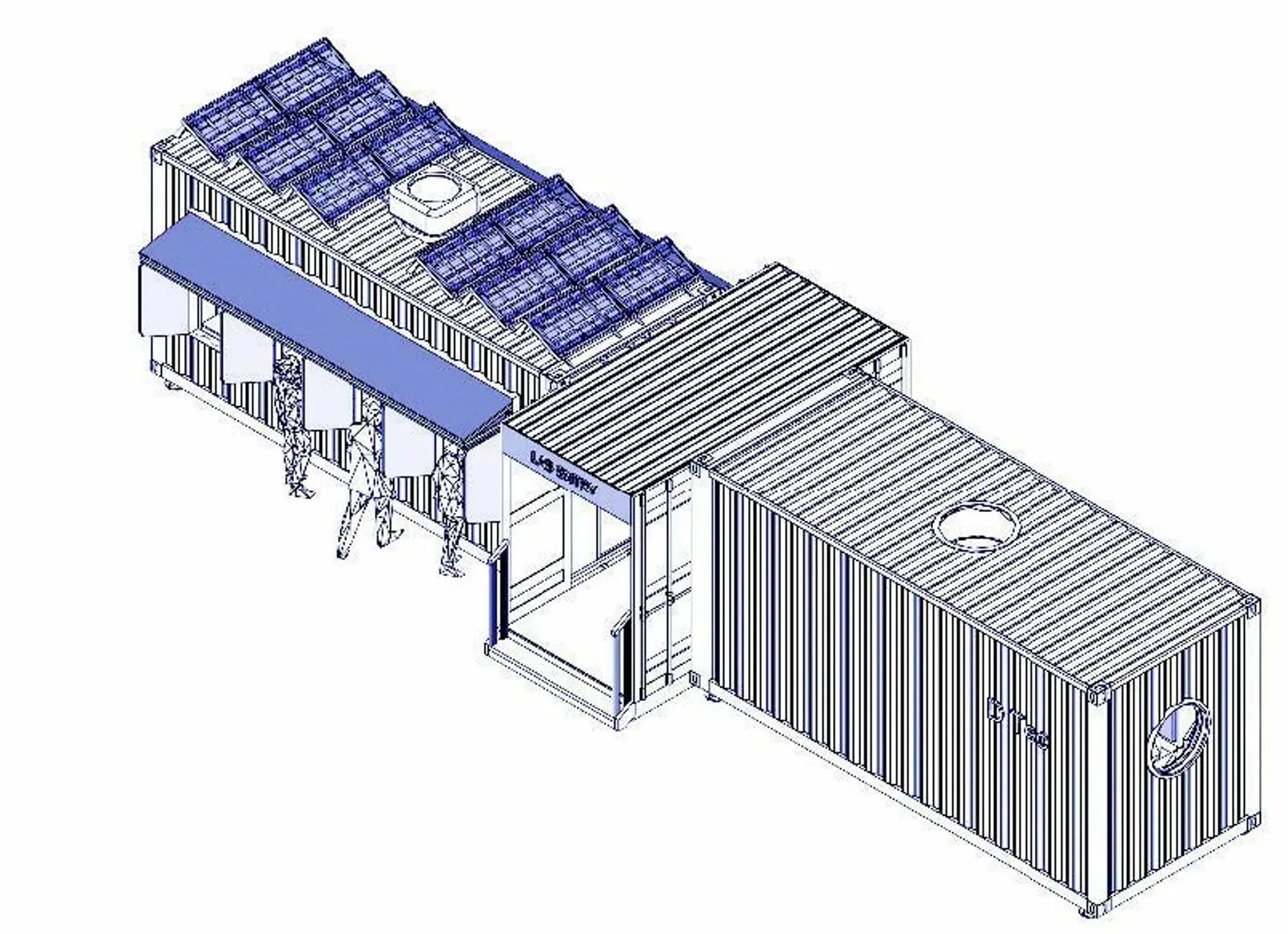

Renderings courtesy of SG Blocks
And last month, SG Blocks, along with architecture firm Grimshaw and OSANG, revealed designs for a shipping container repurposed as a walk-in medical clinic. The containers are designed to offer contact-free testing, walk-up windows, rapid sample processing, enough space for social distancing, and a physical barrier between staff and patients.
“We have always aimed to deliver progressive architecture that strives for a better future, and we believe this suite of highly adaptable, efficient building solutions developed by our industrial design team will provide greater opportunities for the critical role testing, and people’s trust in testing sites, will play as we move forward,” Andrew Whalley, chair of Grimshaw, said in a statement.
In addition to this new line of medical clinics and pop-up labs, Galvin and SG Blocks see an opportunity in the future to work with education institutions. The upcoming school year will likely look very different for teachers and students, whether or not the virus subsides before then.
“We’re spending a lot of time in concept development for recreating shipping containers for tele-education and learning labs,” Galvin said. This could be in the form of decentralizing the school with smaller classrooms, testing facilities, and lab spaces. Galvin told us he’s currently in conversation with a number of government officials, leaders in education, and employers across the country about deploying these facilities.
“By having these satellite facilities, you can reach people in a safe way and properly staff and service them in a way that you’re keeping best practices for public health,” he said. “Which is to try to test folks early, get results, and to keep those currently sick aware and quarantined.”
